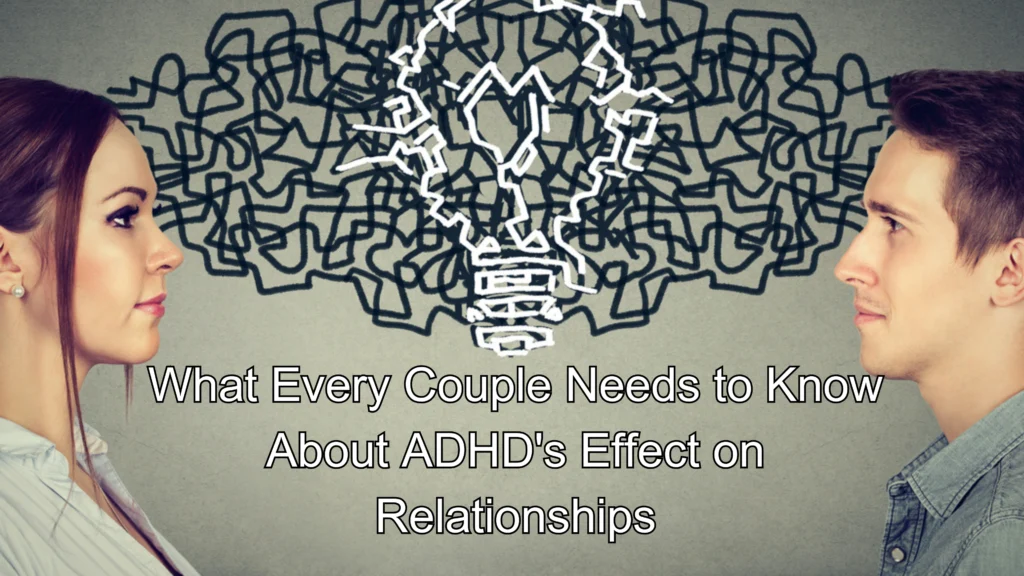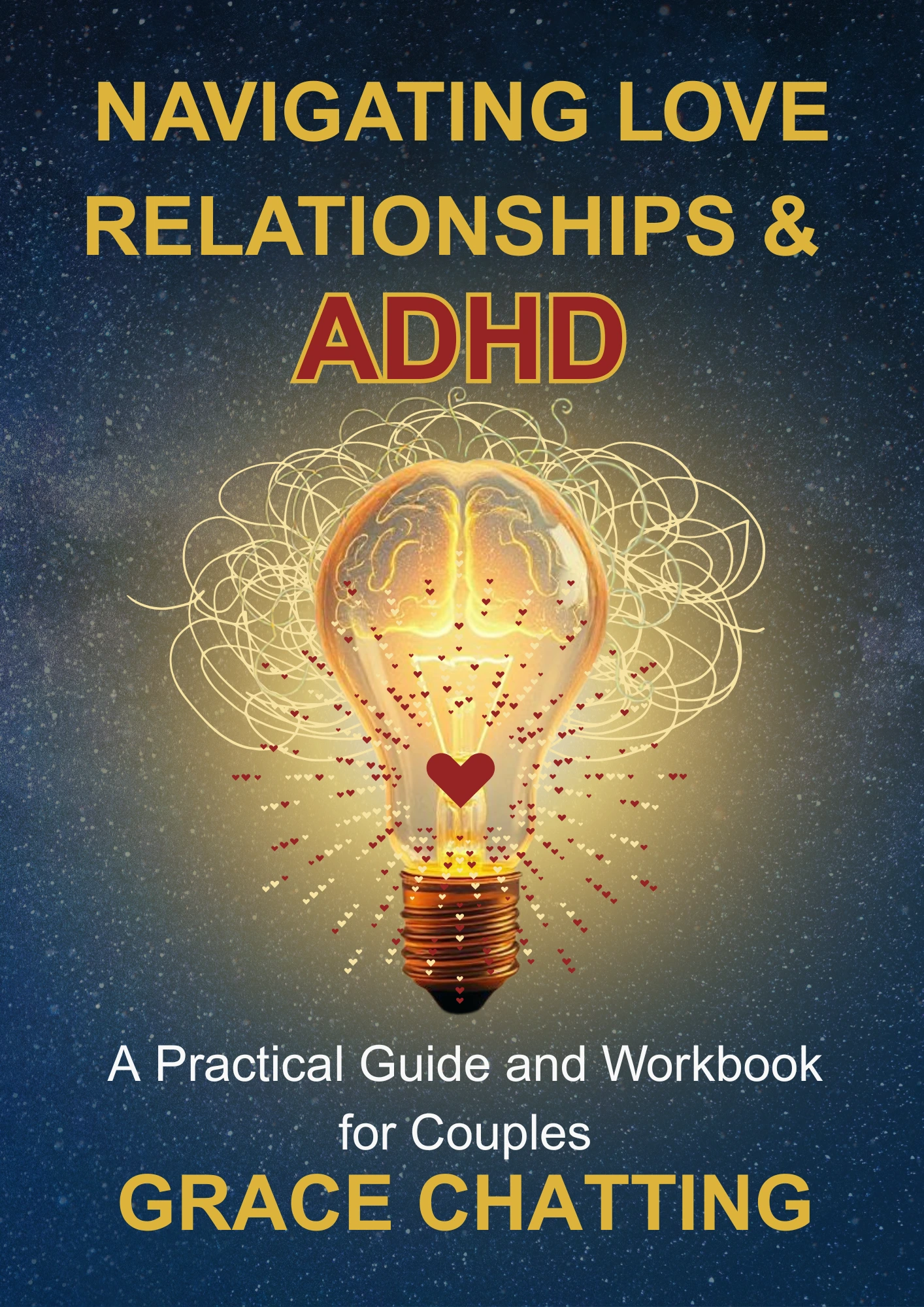What Every Couple Needs to Know About ADHD’s Effect on Relationships
When love feels like an uphill battle, ADHD might be the invisible factor shaping your relationship dynamics.
After nearly four decades of working with couples in crisis, I thought I understood the complexities of love and relationships. Then, in my seventies, I received my own ADHD diagnosis, and suddenly everything I’d observed in my therapy room made perfect sense in a completely new way.
The couples who came to me feeling exhausted and trapped in cycles they couldn’t break weren’t failing at love. They were navigating an invisible neurological difference that no one had taught them to recognise or understand.
If you’ve ever felt like you and your partner are speaking different languages or wondered why simple things become unnecessarily complicated in your relationship, you’re not alone. ADHD doesn’t just affect the individual who has it—it significantly influences the entire relationship dynamic, often in ways that neither partner fully understands.
Beyond the Childhood Stereotype
When most people hear “ADHD,” they picture that hyperactive boy bouncing off classroom walls. This outdated image has done tremendous damage, particularly to women and adults who learned to mask their symptoms. For decades, millions of people have lived with undiagnosed ADHD, internalising harmful beliefs: “I’m lazy,” “I’m too sensitive,” “I just can’t get it together.”
But ADHD isn’t a character defect or lack of willpower. It’s a fundamental difference in how the brain processes attention, emotions, and executive functions. The person with ADHD isn’t choosing to forget essential dates any more than someone with diabetes is choosing to have blood sugar irregularities.
ADHD affects how someone regulates attention—not whether they can pay attention at all. People with ADHD can hyperfocus so intensely that they lose all sense of time. The challenge isn’t attention itself; it’s the inconsistent ability to control where that attention goes and when.
SIGN UP TO MAILING LIST
The Relationship Rollercoaster
ADHD relationships often begin with extraordinary intensity. The ADHD partner becomes completely absorbed in this new love, planning elaborate dates, remembering every conversation detail. It feels magical, like being the centre of someone’s universe.
But then something shifts. The hyperfocus naturally fades, and suddenly the same person who once hung on every word seems distracted during conversations. They forget plans they were excited about making. Their attention, which once felt laser-focused on the relationship, now scatters in multiple directions.
For the non-ADHD partner, this can be very painful. They might wonder, “What happened to the person who was so into me?” The reality is, the love remains, but the neurochemical changes that created that intense focus have naturally shifted over time. Without recognising this pattern, both partners often feel confused and wounded.
The Emotional Landscape
One of the most misunderstood aspects of ADHD in relationships is emotional regulation. Many people with ADHD feel emotions with overwhelming intensity. A small criticism might trigger what seems like an enormous reaction, not because they’re being dramatic, but because their nervous system processes emotional input differently.
For someone with ADHD, emotions don’t have gradual volume control—they tend to go from zero to one hundred very quickly. There’s also Rejection Sensitivity Dysphoria, where even mild criticism feels like devastating emotional wounds, leading to defensive reactions that confuse partners who had no intention of being critical.
The Daily Dance of Misunderstanding
In practical terms, ADHD creates patterns that become incredibly frustrating over time. The ADHD partner might consistently run late, not because they don’t value their partner’s time, but because their perception of time is fundamentally different. They might interrupt conversations, not from rudeness, but because their thoughts feel urgent.
Executive function challenges mean good intentions don’t always translate into follow-through. The ADHD partner might genuinely plan to handle bills or clean the house, but get sidetracked by something that captures their attention. Meanwhile, the non-ADHD partner often ends up carrying the mental load—remembering important dates, managing finances, keeping track of commitments.
Over time, this creates a dynamic where the non-ADHD partner feels more like a manager than an equal partner, while the ADHD partner feels constantly criticized. Both end up feeling resentful and misunderstood.
A Story of Recognition
Let me tell you about Sarah and James, a couple who came to see me after five years together. Their love was evident, but so was their exhaustion. Sarah felt invisible—James would get absorbed in projects and seem to forget she existed. He’d make promises about responsibilities but get distracted and leave tasks unfinished.
James felt like he was constantly disappointing the person he loved most. When Sarah expressed frustration, his reaction was defensive anger, which only made things worse.
The breakthrough came when we explored ADHD’s role in their dynamic. Once they understood they weren’t fighting each other but rather fighting ADHD patterns, everything shifted. Sarah learned to recognize James’s distractibility as neurological difference, not personal slight. James began implementing external systems to support his executive function challenges.
They didn’t just survive—they thrived. Their relationship became stronger because they learned to work with ADHD rather than against it.
SIGN UP TO MAILING LIST
Reframing the Conversation
We need to change how we talk about ADHD entirely. The language of “disorder” and “deficit” focuses on what’s wrong rather than acknowledging these are different ways of processing the world. Many ADHD traits can be tremendous strengths in the right context.
The same impulsivity that causes problems also enables spontaneity and adventure. Hyperfocus allows for extraordinary creativity. The emotional intensity that can feel overwhelming also enables deep empathy and passionate engagement with life.
When couples learn to utilise these strengths while managing challenges, ADHD can genuinely enrich their relationship. The key is understanding and accommodation, not attempted “cures.”
Moving Forward Together
Understanding ADHD’s influence isn’t about excuses; it’s about making well-informed choices rooted in accurate knowledge. When couples realise they have different neurological operating systems, they can adopt strategies that truly make a difference.
This might mean using external reminder systems, learning specific communication techniques, or developing emotional regulation strategies. It often includes sharing responsibilities based on individual strengths rather than arbitrary notions of fairness.
Both partners’ experiences matter equally. The non-ADHD partner’s feelings of exhaustion or resentment are entirely valid—you’re not being unsupportive by acknowledging that ADHD-related behaviours affect you.
After four decades of helping couples, I can tell you with complete confidence that ADHD relationships can be extraordinarily fulfilling. The intensity, creativity, and passion that characterise these partnerships can be remarkable gifts when properly understood.
The path forward isn’t about changing who you are fundamentally—it’s about learning to work with your unique differences as a team. And that journey can lead to a deeper, more authentic connection than many couples ever experience.
Get my book - Navigating Love Relationships & ADHD here!


